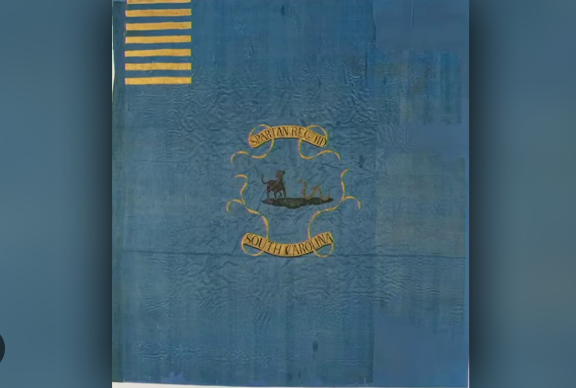Denmark Vesey is having his moment.
A three-day public commemoration of the 200th anniversary of his planned liberation of enslaved Charleston-based Africans has been announced for this summer.
Titled “Denmark Vesey Bicentenary,” the event represents an unprecedented partnership between Emanuel AME Church, International African American Museum and Charleston Gaillard Center.
The initiative, which gathers leading artists, scholars, educators, entertainers and community members for discussions, live performances and installations, will take place at the Gaillard, which brought together the three entities, from July 14-16.
“The Charleston Gaillard Center is uniquely positioned to convene, elevate and reflect the voices an issues that matter most to our community through the arts, and honoring Denmark Vesey—a significant historical figure in Charleston whose story is often misunderstood and underrecognized—is an essential part of that work,” said Lissa Frenkel, recently appointed CEO of the Charleston Gaillard Center.
Redressing a narrative
By recognizing and reflecting on the planned revolution, the presenting partners of “Denmark Vesey Bicentenary” aim to help the community understand the brutal truths and ongoing repercussions of slavery, all in the spirit of meaningful exchange.
“Authentic reckoning with the history of slavery in this country and its aftermath and institutionalized echoes is one of our nation’s greatest challenges—and the story of Denmark Vesey is a critical exemplar history must reckon with intentionally,” said Tonya Matthews, CEO of International African American Museum, in a statement.
“No other community can take this on the way Charleston can.”
Denmark Vesey is having his moment.
A three-day public commemoration of the 200th anniversary of his planned liberation of enslaved Charleston-based Africans has been announced for this summer.
Titled “Denmark Vesey Bicentenary,” the event represents an unprecedented partnership between Emanuel AME Church, International African American Museum and Charleston Gaillard Center.
The initiative, which gathers leading artists, scholars, educators, entertainers and community members for discussions, live performances and installations, will take place at the Gaillard, which brought together the three entities, from July 14-16.
“The Charleston Gaillard Center is uniquely positioned to convene, elevate and reflect the voices an issues that matter most to our community through the arts, and honoring Denmark Vesey—a significant historical figure in Charleston whose story is often misunderstood and underrecognized—is an essential part of that work,” said Lissa Frenkel, recently appointed CEO of the Charleston Gaillard Center.
Redressing a narrative
By recognizing and reflecting on the planned revolution, the presenting partners of “Denmark Vesey Bicentenary” aim to help the community understand the brutal truths and ongoing repercussions of slavery, all in the spirit of meaningful exchange.
“Authentic reckoning with the history of slavery in this country and its aftermath and institutionalized echoes is one of our nation’s greatest challenges—and the story of Denmark Vesey is a critical exemplar history must reckon with intentionally,” said Tonya Matthews, CEO of International African American Museum, in a statement.
“No other community can take this on the way Charleston can.”
The site is just a half-mile from Gadsden’s Wharf, which was an active entry point in a major port of the transatlantic slave trade. Charleston received around 40 percent of all enslaved Africans brought to North America.
Vesey, a former enslaved man and liberator in Charleston who had purchased his freedom, in 1822 organized a plan to free hundreds of those men, women and children with the ultimate goal of them all sailing to Haiti where they could live as free citizens.
When his plans were leaked and thwarted, 131 Africans were arrested, with 92 put on trial and another 11 sent into permanent exile. Vesey was executed on July 2, 1822, along with 35 Black men who were either hung or shot as a result of the plot.
The partners, which are all located near the eastern part of Calhoun Street, determined that the anniversary is an opportunity to combine resources.
“We are talking about an event, a moment, a main character in the story of Charleston, but because of the time and the tone of the event, this is a full-fledged American story as well,” Matthews said.
The initiative seeks to commemorate the historical significance of the event, while also redressing narratives surrounding Vesey, dispelling long-held mischaracterizations of him to instead consider his role as a freedom fighter.
Talks, concerts, comedy
To get to the heart of the history, the program is taking manifold inroads. Some, like panel discussions, are organic to such historical milestones. Others, like installations and comedy events, could be said to represent a nontraditional means to understanding.

Light illuminates details on a monument of Denmark Vesey in Hampton Park on May 11, 2022, in Charleston. Gavin McIntyre/Staff





